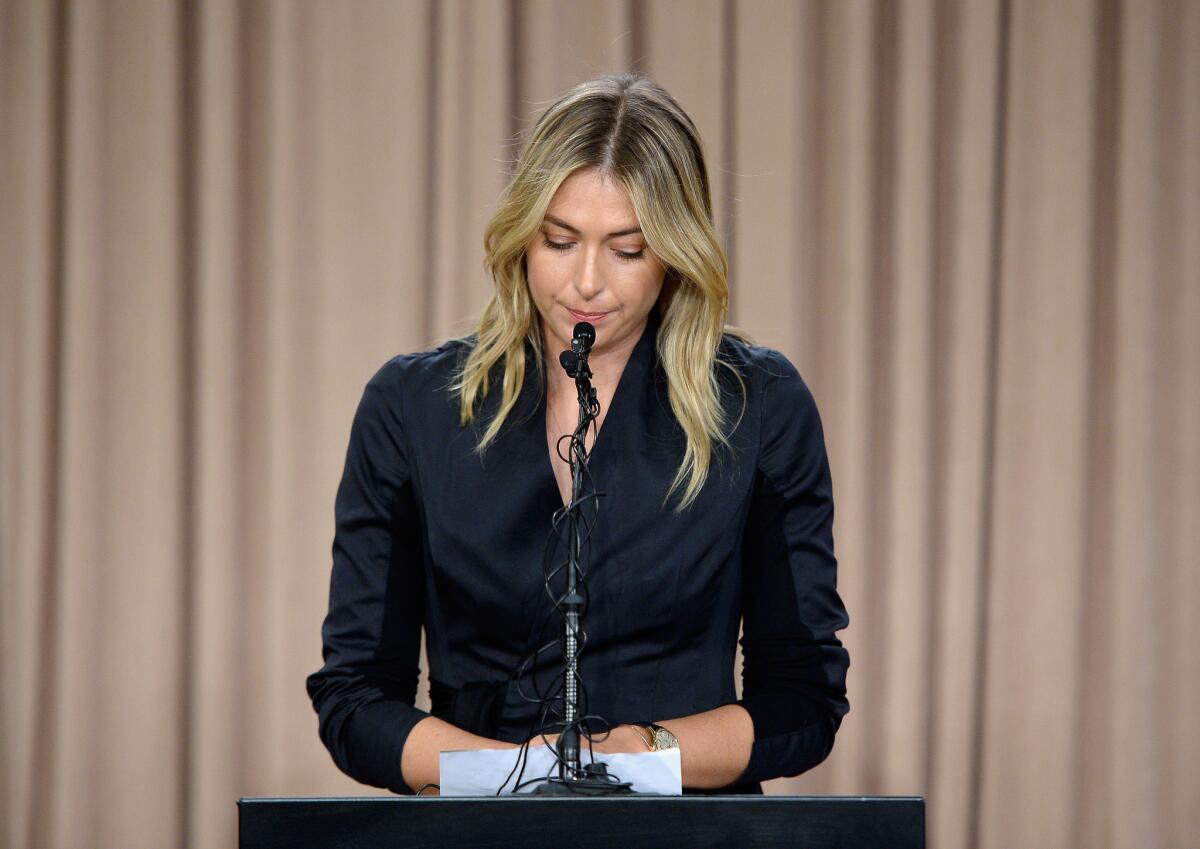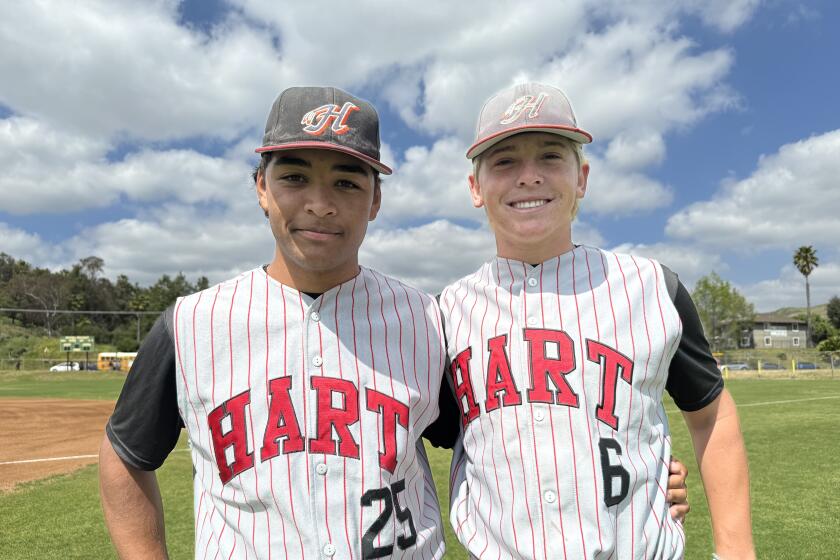Tennis pro Maria Sharapova says she takes ‘full responsibility’ for failed drug test

Maria Sharapova tells reporters at a Los Angeles news conference that she failed a drug test in January at the Australian Open.
Tennis star Maria Sharapova failed a drug test at this year’s Australian Open, she announced Monday at a news conference in Los Angeles.
“I did fail the test, and I take full responsibility for it,” Sharapova said.
She said she was informed of the failed test in a letter sent by the International Tennis Federation a few days ago. On Dec. 22, she said, she received an email from the World Anti-Doping Agency that listed prohibited items for the upcoming year, but admitted that she “did not look at that list.”
Sharapova said she had legally taken the drug in question, meldonium, since 2006 to treat an array of health issues. At that time, she said, she was “getting sick a lot,” with a magnesium deficiency, irregular EKGs and early signs of diabetes.
Sharapova’s lawyer, John Haggerty, said he couldn’t comment on where Sharapova’s family doctor was based.
“I’m not trying to be evasive, but that’s the rules that we have to play by,” Haggerty told The Times.
Meldonium is not an FDA-approved substance in the United States, though its use is common in Eastern Europe and former Soviet countries for people with heart conditions. It is also for sale online. WADA monitored the effects and use of meldonium before announcing in September that it would be declared a banned substance in 2016.
Sharapova is a native of Russia. Another athlete from that country, elite ice dancer Ekaterina Bobrova, said Monday that she too had tested positive for meldonium. The former European champion was part of the gold medal-winning Russian team at the 2014 Winter Olympics in Sochi, Russia.
Russian cyclist Eduard Vorganov also tested positive for the substance last month. And Swedish media reported in February that former world champion 1,500-meter runner Abeba Aregawi, an Ethiopian who competes for Sweden, had tested positive for meldonium. That report also mentioned two other cases involving Ukrainian biathletes.
The ITF’s “Tennis Anti-Doping Programme 2016” establishes that the “period of ineligibility” is four years when a banned substance is taken intentionally, and two years if taken unintentionally. The next step in the process would be a series of hearings. There’s no timeline on when that will take place, but Haggerty said that probably will be determined in the next few weeks.
“Certainly one of the things we plan to present to the ITF is all of Maria’s medical records and the long history she had of being recommended to take this medication by her family doctor for very well-established medical conditions,” Haggerty said.
There have been instances when an athlete has retroactively applied for and been granted a therapeutic use exemption (TUE), which allows the athlete to use a banned substance if it’s for legitimate health reasons. However, that would require the ITF and WADA to administer the TUE out of “fairness,” which is extremely rare. Sharapova could invoke her previous use of the drug and medical history at the hearings without applying for a TUE.
Dr. Michael S. Lee, a cardiologist and associate professor at UCLA Medical Center, declined to address Sharapova’s case, but when asked about meldonium’s possible health benefits, he said: “I can tell you that in my roughly 18 years of practicing medicine, not once have I nor my medical colleagues ever prescribed this medication. It has no robust, randomized trials to support its clinical use from a cardiac perspective in terms of any benefit regarding the treatment of cardiovascular disease like arrhythmia, heart failure or coronary artery disease.”
Sharapova, a 28-year-old winner of five Grand Slam tournaments, is No. 7 in the World Tennis Assn. singles rankings, but she has not played since losing in the quarterfinals of the Australian Open six weeks ago. Last week, she pulled out of the BNP Paribas Open, which begins this week at Indian Wells, saying she was “extremely disappointed” but needed to continue healing a left forearm injury. On Monday, she reiterated that her injury was the reason she was not participating.
“I don’t want to end my career this way and really hope that I’ll be given another chance,” Sharapova said.
MORE SPORTS:
Dodgers infielder Chase Utley is happy to put suspension for hard slide behind him
Archie Manning on Peyton’s post-retirement options: He’s not ‘saying absolutely no to anything’
Five takeways from the Lakers’ shocking victory over Golden State
More to Read
Get our high school sports newsletter
Prep Rally is devoted to the SoCal high school sports experience, bringing you scores, stories and a behind-the-scenes look at what makes prep sports so popular.
You may occasionally receive promotional content from the Los Angeles Times.






